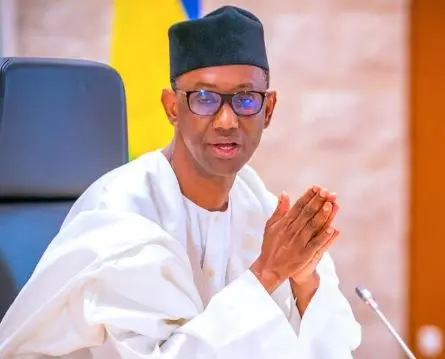The National Security Adviser, Malam Nuhu Ribadu, has called for enhanced community based engagement to address root causes of insurgency and drive re-integration and reconciliations process for repentant terrorists in the North East region.
He made the call at the launch of European Union (EU) Support for Disengagement, Review, Reintegration and Reconciliation (SD3R) of Persons Formerly Associated with Non State Armed Groups (NSAGs) in North East Nigeria, on Thursday in Abuja.
He said the SD3R project was conceived to promote peace and stability in the North-East Nigeria through community-driven reintegration and reconciliation process for NSAGs.
Ribadu said the project also strives to support authorities in effectively investigating and prosecuting individuals accused of terrorism offences in the North east, ensuring meaningful accountability and redress for serious crimes.
He added that his office, through the National Counter-Terrorism Centre (NCTC) would continue to coordinate the project in line with the Terrorism Prevention and Prohibition Act, 2022.
Ribadu added that ONSA would also coordinate the Policy Framework and National Action Plan for Preventing and Countering Violent Extremism (PF-NAP for PCVE), 2017, as well as other relevant policy documents.
He thanked the EU for the massive support to Nigeria, especially its counter-terrorism initiatives for funding the project since inception.
In his remarks, Gov. Babagana Zulum of Borno State commended the stakeholders aimed at identifying the root causes of insurgency in the North East, saying ending insurgency in the region would lead to end of insurgency in the country.
Zulum said the North East States must establish ownership of the activities that were already being carried out by addressing the social, economic and political dimensions of the crisis.
He said the root causes of insurgency were not limited to increasing poverty, climate vulnerabilities and infrastructure deficit, adding that the second objective of the project on gender responsive was key.
EU Head of Delegation to Nigeria and ECOWAS, Amb. Samuela Isopi, said healing and reconciliation could be achieved in the sub-region if all stakeholders work together, leveraging on collective expertise.
Isopi said the EU was happy to continue to support the process in the hope that it would help rebuild broken bridges within families and communities.



